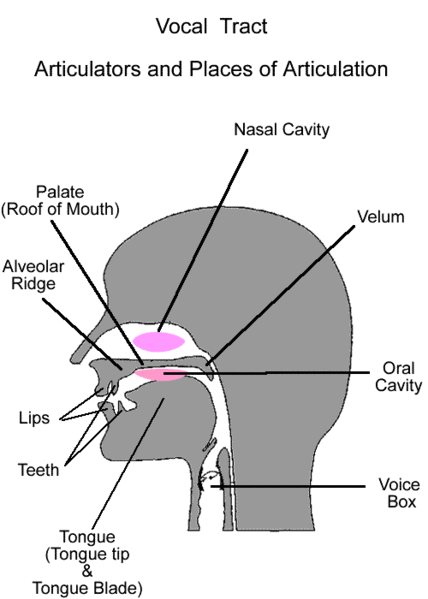Tongue Training: How to Perfect an Accent

Photo via Pixabay
Without a doubt, the world is obsessed with health. We see fitness fads splattered all over the internet, promises of 6 packs in 6 days and magical pills that will make your jiggly bits slip away. But one muscle that has been sorely excluded, like a new kid at lunchtime, is the wonderful and almighty tongue.
It is fascinating how many complex sounds humans can produce (just look at beatboxers or Michael Winslow’s 10,000 noises), and how many of them we struggle to pronounce. In fact no natural language uses our full phonetic potential. This could be the main culprit for our stubborn Anglophone accent, which can linger even after years of studying a language.
Well, like an athlete preparing for a marathon, maybe we just need to work out more, particularly with the sounds that are unfamiliar to our lexicon. Just a few reps of gargling and tongue rolling a day could help beat those unhealthy lingual habits and make adopting the phonetics of a new language much easier. You may have read that to it all comes down to genetics, but take it from me (someone who could not roll her r’s until 21!), practice makes perfect.

Photo via Wikimedia
Rolling your r’s

Photo via Free Stock Photos
If you’re about to jump on the Spanish bandwagon, or have jumped on it already, you will encounter the sensual rr without a doubt. Not only is it littered throughout the Spanish lexicon, it pops up in many Romance languages, and some Asian ones too (e.g. Japanese); so mastering this sound will help you perfect Spanish and an array of other languages, as well. Even if it is tempting, don’t fall into the trap of avoiding certain words, relying on the English “r”, or just giving up entirely. Instead, get the tongue ball rolling with these easy techniques below:
- Loosen up with some butter: Don’t worry, you don’t need to start eating chunks of this stuff; rather, repeat “butter” to yourself and focus on how you sound the “r” towards the end. That’s the “r” sound you will be working with.
- Visualise it: During your butter-ritual, lift your tongue towards the roof of your mouth and make a flutter-like motion as your pronounce the “r”; try to extend the sound as you exhale (for a little more visualisation, check out this video: https://www.youtube.com/watch?v=Sfuyz9lxE0s)
- Practice, practice, practice: Don’t shy away from words containing rr during your language venture. Even if you feel like you have butchered and then deep-fried the language (I know I did), every attempt you make is bringing you one step closer fluency.
The Guttural ayn
Well, it’s actually not all about the tongue; a number of languages are characterised by their guttural sounds too: Arabic, German, French (e.g. r) and Spanish (e.g. j), are just a few examples. But many of them involve a similar lingual process as they originate from the throat. Let’s take the Arabic 3 (ayn) as our primary example – a frequent letter in Arabic and a frequent pain in the ass for English speakers. Flow is the key to mastering this letter; but instead of going with it, you’ve got to control it. Let me explain:
- Ahhhh: That’s all you have to do get started: “ahhh”. It’s also a great way to release some frustration after hours of practice.
- Choke yourself: Not literally! Instead, flex your larynx muscles by blocking the airflow mid-way through your “ahhh”. The final sound created is ayn.
- A glass of milk helps: Yes, again with the dairy products, but I’m serious this time. The truth is that you need to use the mucus in your throat to produce this sound; so if you’re really struggling, try drinking a glass of milk before you start practising.

Photo via Wikimedia
The French u
French. A beautiful language by all accounts, but its nasal vowels are not les doigts dans le nez (a piece of cake). Arguably the French u is the most difficult of them all. Try out these exercises below so you don’t take a u-turn when pronouncing this letter, and any similar sounds, in the future:
- Push It: Start by pushing your tongue behind your lower gums.
- She sells sea…: And that’s exactly where you want to stop, at “sea”, or more specifically “ee”.
- Round it: Pronouncing “ee” should automatically make you smile. Bring your teeth together, then move your lips into a whistling position and repeat “ee”. That’s the sound you want!
Of course there are other facets of learning a language which expose your Anglophone accent, like: intonation, rhythm, stress and emphasis. But challenging yourself with lingual exercises like the ones above will help to perfect your accent, or at least broaden your lexical spectrum so you can adopt languages more easily. You could really flex your lingual muscles with the exotic Xhosa clicks from South Africa. These are possibly one of the hardest sounds for an English speaker to produce, particularly in uninterrupted speech; but hey, no pain no gain right?
